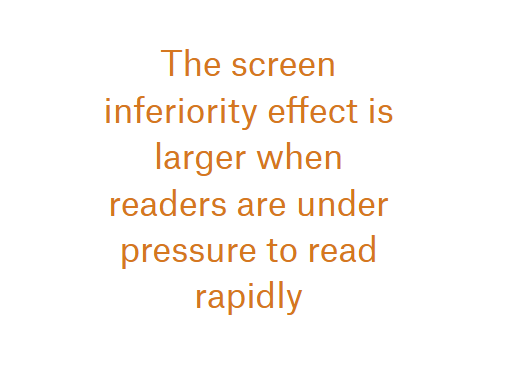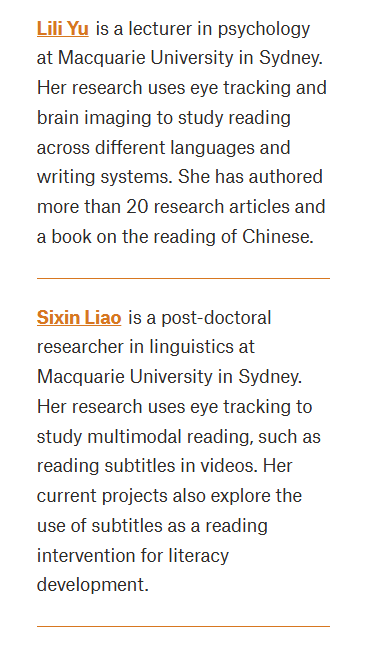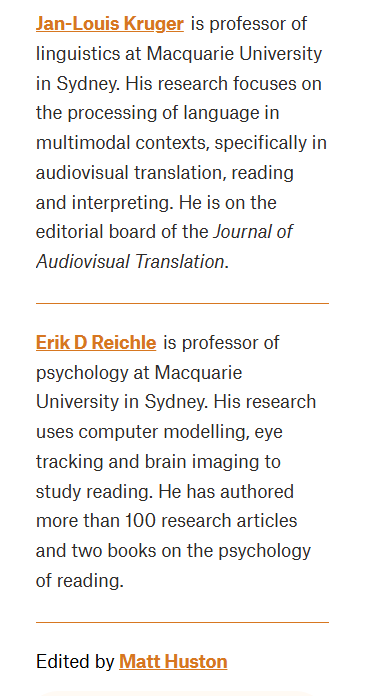What does switching from paper to screens mean for how we read? [View all]
 It’s well established that we absorb less well when reading on screen. But why? And can we do something to improve it?
https://psyche.co/ideas/what-does-switching-from-paper-to-screens-mean-for-how-we-read
It’s well established that we absorb less well when reading on screen. But why? And can we do something to improve it?
https://psyche.co/ideas/what-does-switching-from-paper-to-screens-mean-for-how-we-read

Reading is so commonplace that it’s hard to appreciate how much of a challenge it poses to the human brain. As you read this sentence, you’re using the visual forms of words to access their meanings and pronunciations from memory, and then using this information, and the neural systems that evolved for spoken language, to construct larger units of meaning: phrases, sentences and extended discourse. Reading is a relatively recent cultural invention; our brain did not evolve to read. Only after years of education and practice do people learn to coordinate the brain systems needed to support skilled reading. This process is inherently difficult, as
evidenced by the fact that a significant proportion of people struggle to attain reading proficiency despite having normal intelligence and opportunities for education.
Now pause and think about
how you’re reading this article. You are almost certainly using a digital device such as a computer, smartphone, tablet or e-reader. This simple fact is worth contemplating because it’s only in the past decade that the technology required for digital reading has become ubiquitous. This shift from reading more traditional books, magazines and newspapers to digital media has brought at least one obvious change: it has placed the wealth of information collected by our species at our immediate disposal. This has affected how people use information, with one example being that readers of digital content must exercise critical thinking to sift through the volumes of information at their fingertips.
Given these changes, one might ask if, and how, the use of digital devices has altered the nature or quality of reading. Perhaps you have noticed, for example, that it seems to be more difficult for you to concentrate when you are reading something online than when you are reading a hard-copy book. Does it actually make a difference whether you’re reading a piece of writing on a laptop or on a piece of paper? We recently conducted a
review of the scientific research that bears on this subject and, based on these findings, we can offer some likely answers.

Let’s begin by considering the scripts that are used to read and write. These systems differ across cultures, as a comparison of written English and Chinese makes clear. However, despite often large differences between scripts, the mental processes that support reading appear to be remarkably similar. Perhaps the best evidence for this comes from brain-imaging
experiments showing convergence in the cortical regions that support the reading of languages such as English and Chinese. This research shows that the same regions are involved in visually processing printed words and then using the meanings of those words to construct the meanings of phrases and sentences.
snip






